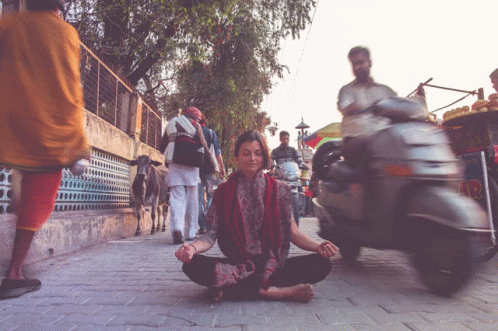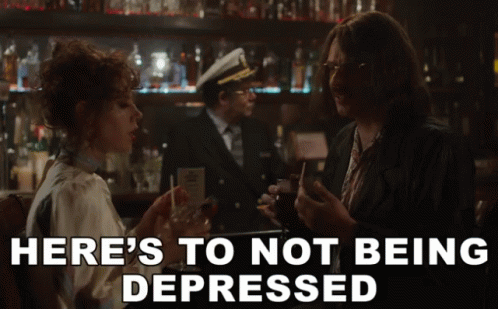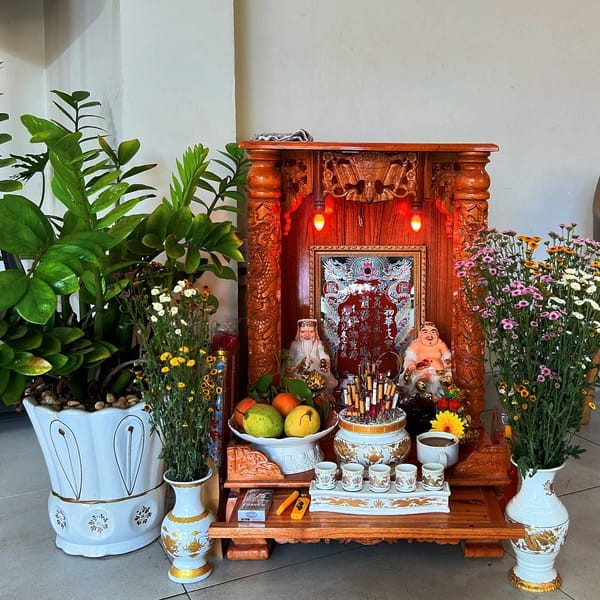meditation: powerful or pointless?

With conversations around mindfulness and its benefits being seen more frequently in society and on social media platforms today, questions around meditation are becoming more common.
In the past, mainstream western culture conveyed meditation as rather alien, often associating it with hippies and nonconformists in the media and totally disregarding it as a valuable practice.
But meditation has an important place, and ancient roots, within many traditionally Eastern religions, such as Buddhism and Hinduism, and so in the East, meditation's value and worth has conversely been recognised for a long time.
However, the internet allows us all to now access knowledge and information about meditation - regardless of its differing significance across culture traditionally. Especially since the pandemic of 2020, more and more people are sharing their positive experiences with meditating online.
Meditation will have you smiling for no particular reason. It’s just what peace does.
— V A L E N C I A (@SayItValencia) September 13, 2022
i did a guided meditation to calm down and it helped a lot
— douachi aka dorky lee (@mingoyoongi2) September 14, 2022
What actually is meditation?
Meditation is a spiritual practice which can be traced all the way back to Vedic scripture - some of the oldest writings in Hinduism, going back around 4000 years - where it was written of in the ancient language of Sanskrit. The Vedic tradition explains it as bringing ourselves closer to our inner selves.

One of the main premises of meditation is to tune in to the present moment, to put the external world of stimulation on pause and to view your passing thoughts from a sort of 'third person' perspective. To observe thought without reaction, judgement or attachment.
Sounds cool, but I just don't have the time...
The thing is, you definitely do. We all can make the time in our day to reflect, to quieten and question our minds, if we decide to.
Whether it's while you're driving, or walking - even while you're washing the dishes or doing some laundry - , there's always at least a moment in each day when it's accessible to watch where our mind wanders to when we loosen our grip of it.
Get creative with it! To meditate can involve many things; it isn't exclusive to the stereotypical sitting down cross-legged and chanting the Om mantra (while this is a notable form, common across many faiths).
Taking a walk is a form of meditation
— Sergio Roman • Health & Nutrition Coach (@SergioRomanHC) January 5, 2023
Benefit your body and mind at the same time
I don't feel the need to meditate, though. Why should I?
It's understandable to assume that there aren't any real benefits to keeping a meditation practice, considering how the media has alluded to the subject in the past. Yet, science shows us that meditation has many physiological, mental, emotional and spiritual benefits.
- Disempowering negative thoughts
- Heightening clarity
- Balancing emotions
- Inducing a feeling of deeper connectedness with the Inner self
- Lowering blood pressure
- Heightening self-compassion and awareness
A study into meditation even found its subjects to be 'less judgemental, more accepting and less depressed' as a result of their practise.

So, basically, meditation is great, and definitely a powerful, and not pointless, practice.
Especially in a world as hectic, loud and overstimulating as ours can be, it's essential that we create time for our minds to process all of the information they receive throughout the day, and allow ourselves to experience our lives in the present moment.
To get closer to our inner selves, to experience peace, to be more compassionate and aware.





